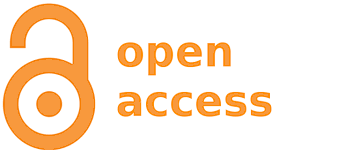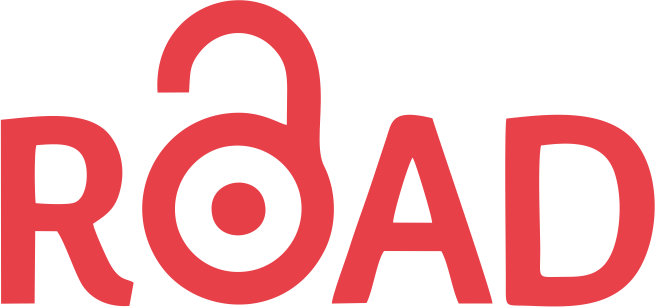Analysis of Users’ Requirements for Public Waste Management Services Using Fuzzy Inference
Abstract
Municipalities play a key role in public waste management ensuring effective and efficient service performance. In Colombia, the public utilities sector has undergone significant changes since decentralization and the entry of private companies into the sector. In this study, our purpose is to analyze user perceptions and their willingness to pay for additional services regarding waste management. By using data analysis methods and a Mamdani fuzzy inference system, we were able to identify users’ service requirements and expected quality. According to the results of our analysis, a combination of minimum coverage and low frequency resulted in a tariff increase of 7.05%. Furthermore, we recommend expanding the model to include other waste management services, such as solid waste collection, as well as to consider environmental aspects and sustainable practices.
References
Departamento Nacional de Planeaci´on, “Participaci ´on Privada en Servicios P´ublicos Domiciliarios –Lineamientos de Pol´ıtica (Documento CONPES 3385). Bogota D.C., Colombia: DNP,” 2005.
Decree 1713 of 2002 [Ministerio de Desarrollo Economico], Por el cual se reglamenta la Gestion integral de residuos solidos. Colombia, 2002.
Decree 2981 of 2013 [Ministerio de Vivienda Ciudad y Territorio], Por el cual se reglamenta la prestaci´on del servicio p´ublico de aseo. Colombia, 2013, p. 44.
Comision de Regulacion de Agua Potable y Saneamiento B´ascio, Resoluci´on CRA 831. 2018, pp. 1–52.
Comision de Regulacion de Agua Potable y Saneamiento B´asico, Resoluci´on CRA 643. 2013, pp. 1–54.
Comision de Regulacion de Agua Potable y Saneamiento B´asico, Resoluci´on Cra 664. 2014, pp. 1–37.
Superintendecia de Servicios P´ublicos Domiciliarios, “Sistema unico de informacionde servicios domiciliarios.” 2016. [Online]. Available: http://reportes.sui.gov.co/fabricaReportes/frameSet.jsp?idreporte=ase_com_146.
Arango Serna, M. D., and Serna Uran, C. A. New contract net negotiation protocol based on fuzzy inference applied to the supply chain. Universidad, Ciencia y Tecnologıa 20, 81 (2016), 176–187.
Asare, W., Oduro-Kwarteng, S., Donkor, E. A., and Rockson, M. A. Cost-effectiveness of incentive schemes for waste material resource recovery. Cleaner Waste Systems 2 (2022), 100019.
Bostancı, B., and Erdem, N. Investigating the satisfaction of citizens in municipality services using fuzzy modelling. Socio-Economic Planning Sciences 69 (2020), 100754.
Bui, T. D., Tsai, F. M., Tseng, M.-L., and Ali, M. H. Identifying sustainable solid waste management barriers in practice using the fuzzy delphi method. Resources, conservation and recycling 154 (2020), 104625.
Chan, K. Y., Kwong, C. K., and Law, M. A fuzzy ordinary regression method for modeling customer preference in tea maker design. Neurocomputing 142 (2014), 147–154.
Chang, N.-B., Chen, Y., and Wang, S. A fuzzy interval multiobjective mixed integer programming approach for the optimal planning of solid waste management systems. Fuzzy sets and systems 89, 1 (1997), 35–60.
Chang, T.-H. Fuzzy vikor method: A case study of the hospital service evaluation in taiwan. Information Sciences 271 (2014), 196–212.
Falcone, P. M., and De Rosa, S. P. Use of fuzzy cognitive maps to develop policy strategies for the optimization of municipal waste management: A case study of the land of fires (italy). Land use policy 96 (2020), 104680.
Fried, T. “It’s Not Just Garbage — It’s Waste”: Conceptualizing the Social, Historical and Epistemic Grounds of Municipal Solid Waste Treatment in Israel. PhD thesis, Bar Ilan University, 2019.
Haktanir, E., and Kahraman, C. New product design using chebyshev’s inequality based interval-valued intuitionistic z-fuzzy qfd method. Informatica 33, 1 (2022), 1–33.
Kilic, H. S., and Ayhan, M. B. The comparison of municipality recyclable waste collection performances with fuzzy based integrated approaches. In CIE 2014 - 44th International Conferenceon Computers and Industrial Engineering and IMSS 2014 - 9th International Symposium on Intelligent Manufacturing and Service Systems, Joint International Symposium on ”The Social Impacts of Developments in Informat (2014), p. 1396–1408.
Li, X., and He, Z. An integrated approach for evaluating hospital service quality with linguistic preferences. International Journal of Production Research 59, 6 (2021), 1776–1790.
Liang, D., Linda, B. E., Wang, M., and Xu, Z. Hospital health-care delivery quality evaluation in ghana: an integrated medical triangular fuzzy multimoora approach. Information Sciences 605 (2022), 99–118.
Mahpour, A. Prioritizing barriers to adopt circular economy in construction and demolition waste management. Resources, conservation and recycling 134 (2018), 216–227.
Reyes-Garcıa, C. A., and Torres-Garcia, A. A. Fuzzy logic and fuzzy systems. In Biosignal Processing and Classification Using Computational Learning and Intelligence. Elsevier, 2022, pp. 153–176.
Sadeghi Ahangar, S., Sadati, A., and Rabbani, M. Sustainable design of a municipal solid waste management system in an integrated closedloop supply chain network using a fuzzy approach: a case study. Journal of Industrial and Production Engineering 38, 5 (2021), 323–340.
Sukholthaman, P., Shirahada, K., and Sharp, A. Toward effective multi-sector partnership: A case of municipal solid waste management service provision in bangkok, thailand. Kasetsart Journal of Social Sciences 38, 3 (2017), 324–330.
Suryawan, I. W. K., and Lee, C.-H. Citizens’ willingness to pay for adaptive municipal solid waste management services in jakarta, indonesia. Sustainable Cities and Society 97 (2023), 104765.
Tabarquino Munoz, R. Los servicios p´ublicos domiciliarios en colombia: Una mirada desde la ciencia de la pol´ıtica p´ublica y la regulaci´on, 2011.
Tafuro, A., Dammacco, G., Esposito, P., and Mastroleo, G. Rethinking performance measurement models using a fuzzy logic system approach: a performative exploration on ownership in waste management. Socio-Economic Planning Sciences 79 (2022), 101092.
Teshome, F. B. Municipal solid waste management in ethiopia; the gaps and ways for improvement. Journal of Material Cycles and Waste Management 23 (2021), 18–31.
Trillas, E., and Eciolaza, L. Fuzzy logic. Springer International Publishing, 2015.
Tsai, F.-M., Bui, T. D., Tseng, M.-L., Lim, M. K., Wu, K.-J., and Mashud, A. H. M. Assessing a hierarchical sustainable solid waste management structure with qualitative information: Policy and regulations drive social impacts and stakeholder participation. Resources, Conservation and Recycling 168 (2021), 105285.
Zaeimi, M. B., and Rassafi, A. A. Designing an integrated municipal solid waste management system using a fuzzy chance-constrained programming model considering economic and environmental aspects under uncertainty. Waste Management 125 (2021), 268–279.
Zarrinpoor, N. A sustainable medical waste management system design in the face of uncertainty and risk during covid-19. Fuzzy Optimization and Decision Making (2022), 1–36.
Zhang, Z., Malik, M. Z., Khan, A., Ali, N., Malik, S., and Bilal, M. Environmental impacts of hazardous waste, and management strategies to reconcile circular economy and ecosustainability. Science of The Total Environment 807 (2022), 150856.
Copyright (c) 2023 MENDEL

This work is licensed under a Creative Commons Attribution-NonCommercial-ShareAlike 4.0 International License.
MENDEL open access articles are normally published under a Creative Commons Attribution-NonCommercial-ShareAlike (CC BY-NC-SA 4.0) https://creativecommons.org/licenses/by-nc-sa/4.0/ . Under the CC BY-NC-SA 4.0 license permitted 3rd party reuse is only applicable for non-commercial purposes. Articles posted under the CC BY-NC-SA 4.0 license allow users to share, copy, and redistribute the material in any medium of format, and adapt, remix, transform, and build upon the material for any purpose. Reusing under the CC BY-NC-SA 4.0 license requires that appropriate attribution to the source of the material must be included along with a link to the license, with any changes made to the original material indicated.






